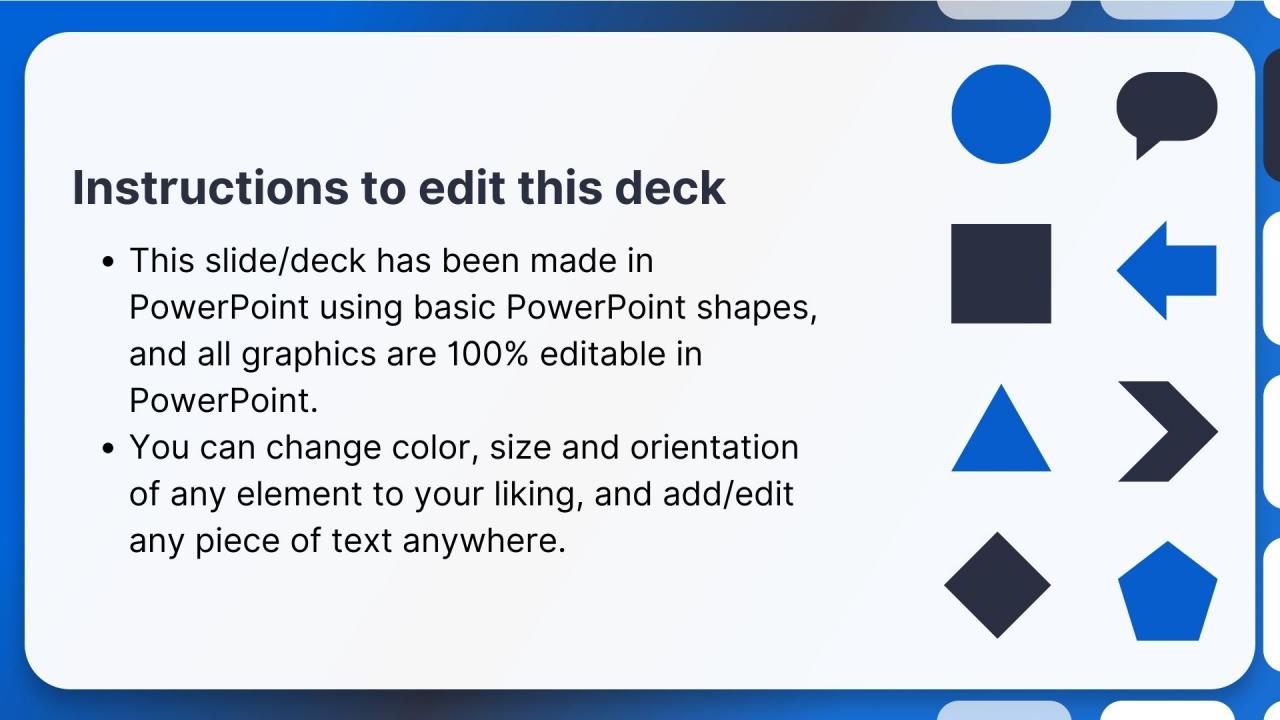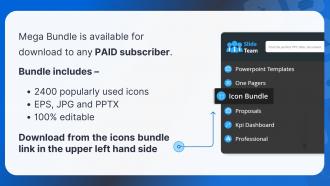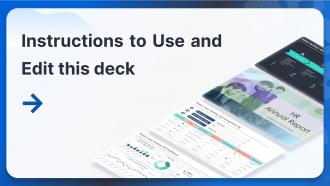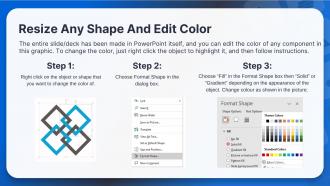SEO For Travel Industry Detailed Strategy And Action Plan Edu Ppt
This set of slides contains customized SEO strategies for the travel industry. It includes travel SEO importance, tips, and common mistakes to avoid. Further, it lists down SEO techniques such as homepage SEO, SEO for categories and TAG pages destination pages, user reviews and rich snippets, blogging and the importance of a travel blog, etc.
You must be logged in to download this presentation.
 Impress your
Impress your audience
Editable
of Time
PowerPoint presentation slides
Presenting SEO for Travel Industry Detailed Strategy And Action Plan. This slide is well crafted and designed by our PowerPoint experts. This PPT presentation is thoroughly researched by the experts, and every slide consists of an appropriate content. All slides are customizable. You can add or delete the content as per your need. Not just this, you can also make the required changes in the charts and graphs. Download this professionally designed business presentation, add your content, and present it with confidence.
People who downloaded this PowerPoint presentation also viewed the following :
Content of this Powerpoint Presentation
Slide 3
This slide covers the importance of SEO in traveling industry. It depicts that SEO generates More Leads From Search Engines despite the presence of big brand traveling websites.
Slide 4
This slide covers the importance of SEO in traveling industry. It depicts that with the help of SEO, a company can get more brand recognition.
Slide 5
This slide covers the importance of SEO in traveling industry. It also depicts that when we use a specific set of keywords on the website, it receives traffic unique that is related to the business
Instructor's Notes:
Thus, when we use a specific set of keywords on the website, it receives traffic unique to what services a company is offering, so the visitors are more likely to stick on the website.
Slide 6
This slide covers facts and information regarding why SEO for the travel websites is different from other websites.
Instructor's Notes:
Be Highly Browsable:
- When someone is planning a vacation and searching the internet for travel information, they want to go to sites that allow them to feel the experience of their destination. To prepare for their vacation, 69 percent of individuals use online search engines
- Travel websites include background information about numerous things to do and see at the places a person plans to visit
- Blogging for SEO is an excellent strategy used on travel sites that mainly handle bookings or reservations
Include Plenty of Visuals
- Travel websites should also have many pictures
- Travelers want to know where they're headed, and there's no better way to let them know than to show them amazing images
Use Various Travel Search Terms
- When people plan a family vacation, they frequently search for different locations. Visitors will begin by entering in general search phrases such as "affordable family vacation" or terms related to a specific place, such as "where is Costa Rica?“
Wordy Blogs
- Quality vacation websites generally have more than 2000 words per page
- This is because people want a story and virtually experience the vacation before boarding an aircraft. This doesn't mean keyword stuffing should be practiced
- Descriptions of destinations encourage people to experience the same
Responsive Design
- Travelers looking for holiday locations use their smartphones 70% of the time. This demonstrates the significance of having a responsive design for your travel website
- Consumers will switch between tablets, laptops, and smartphones to plan a trip, find destinations, explore its features, book flights, find a hotel, and learn about transportation
No Ads and Larger Sites
- AdSense usage in travel industry is roughly half of other industries. Instead, they focus on travel aggregator sites such as trivago.com. Traveling sites offer more internal links, descriptions of where to go and what to see, and photos to improve the descriptions
Paid and Organic Traffic
- When marketing a travel website, keeping a mix of both organic and paid traffic is the best choice. A research found that when businesses in the travel sector bid on their brand names, it increases clicks by more than 40%
Investment in Social Media
- Marketing done using social media platforms does not affect the Google algorithm but helps boost brand recognition. It should be utilized by travel websites to increase traffic
Slide 7
This slide covers local SEO strategy for travel websites. It also depicts that local SEO optimizes a website to appear when people search for the locations to visit
Instructor's Notes:
In order to get your business listed in the local SEO results, you have to do a number of things like:
- Create a Google My Business account and confirm your company's address
- Fill out your Google My Business profile with accurate descriptions, contact information, photographs, and other business information
- Include schema information on your homepage
- Include your physical business address on the homepage
- Optimize your page names, h1 tags, and descriptions to include your location
- Obtain high-quality connections from local websites and other well-known websites
- Ensure that the company's name, address, and phone number are consistent across all mediums (Google Maps, your website, local directories, social media pages, etc)
Slide 8
This slide covers homepage SEO strategy for travel websites/businesses. It also depicts that for travel SEO, the homepage of the website should provide Google with numerous indications regarding the type & activities of the firm and location of properties.
Instructor's Notes:
- If a travel website is presenting numerous vacation homes for rent in Los Angeles, this should reflect in the title of the home page. A decent SEO title may be:
"Exclusive Holiday Villas in Los Angeles" | BrandnameVillas.net.“
- The homepage description is also essential since it may appear in Google results when users search for your site. It should be visually appealing as well as SEO-friendly
Here's an example of an adequate homepage description:
"Stunning Villas for Rent in the most beautiful areas of LA. Browse our collection of exclusive villas and receive discounts on your first booking."
- Make sure to provide schema information on the page such as address and other contact information (as explained in local SEO above)
Slide 9
This slide covers destination pages SEO strategy for travel websites/businesses. It also depicts that there should be a separate landing page for each city or state where the properties are situated
Instructor's Notes:
- Categories will be the 'City / State' and 'Specific Area' pages
- Have distinct titles, unique content, proper H1 tags, include it in the sitemap. Upload it to Google and highlight the properties accessible in the specific location
- The URL should include the destination e.g.: /villas-in-LA/, for optimum response
Slide 10
This slide covers the property page SEO strategy for travel websites/businesses. It also depicts that website owners should include Breadcrumbs, Unique and informative titles, and proper Page Content, and must not add important content in Tabs.
Instructor's Notes:
In terms of SEO, a property page should include:
Breadcrumbs
- At the top of the page, a breadcrumb allows visitors and search engines to return to the 'Area Pages’ quickly
- For example, the breadcrumb for a property page in Los Angeles should look like this:
Home >> California >> Villas in LA>> Large Villa with Private Pool in Malibu
Unique and informative titles
- This might be difficult, especially if you have a lot of identical properties on the website. While creating the title for a property page, consider the features that set the property apart from the others
- Avoid stating the public place in the title. Instead, be more specific. For example:
Large Villa with Private Pool in Malibu
4 Bedroom Villa in Malibu with direct access to the beach
Page Content
- One of the most frequent issues with travel websites is content duplication when a property is featured on many websites
- Property owners post their homes on many websites to enhance their chances of getting a booking, and they generally use the same information. This may not be a significant deal for large companies like Airbnb, TripAdvisor, or booking.com, but it is a problem for smaller websites
- They should diversify the content as much as possible for SEO and a better user experience. An intelligent method is to convey the property qualities in the form of a tale rather than just giving the facts (which have already been published on other websites)
- For example: Once you arrive in the airport, you are only 15 minutes away from a remarkable holiday experience in LA. A 4-bedroom luxury villa is waiting….”
Content in Tabs
- TABS are commonly used in sites to organize categories; however, Google ignores or devalues the content that shows only when users click on the tab and trigger it
- Try not to put essential information in the tabs. You may still utilize them, but keep the most valuable information accessible to Google and users at all times
Slide 11
This slide covers user reviews and rich snippets SEO strategy for travel websites/businesses. It also depicts that user reviews and ratings are important features that affect conversions (bookings) in the travel business.
Slide 12
This slide covers technical SEO strategy for travel website/ businesses. It also depicts that for a completely optimized travel website, page speed, mobile-friendliness, proper use of canonical URLs, and the 404 pages are important.
Slide 13
This slide covers social SEO strategy for travel website/ businesses. It also depicts that social signals do not directly impact rankings but they can help in a number of indirect ways.
Instructor's Notes:
Social SEO best practices for travel websites
- Create company pages on the major social media platforms (Facebook, Pinterest, Instagram, and Twitter) and ensure that your social media profiles are SEO optimized
- Create a good fan page for your Facebook business page
- Post on your social media accounts regularly. The articles should not necessarily originate from your website. Still, it should be about travel advice, things to do at your destinations, fascinating facts about your area, and not overly promotional information that people may find intriguing to read and share
- Monitor mentions of your brand across all social networks and make sure you respond to any remarks, excellent or negative
- Keep an eye out for mentions of your locations and try to engage in discussions or answer related queries without being pushy or too commercial
- Set up a monthly budget for Facebook promoted advertisements (either promoting your properties or blog posts)
- Verify that a page posted from your website displays correctly on social media (good photo, title, and description)
Slide 14
This slide covers link building as SEO strategy for travel website/ businesses. It also includes essential factors such as high-quality inbound links, press releases, links from travel review websites and portals, etc.
Instructor's Notes:
How can you get links that matter for your travel website?
- Press releases: One of the few industries where press releases are beneficial is travel. Travel bloggers frequently examine press releases to find offers for exotic destinations for their readers. If you have good deals on the website, your properties may get featured on major travel portals. It is helpful for SEO and provides free PR
- Mentions (links) from travel review websites and portals: In addition to press releases, you may engage with travel bloggers or journalists on Twitter or Facebook and offer them incentives to visit your website
There are many popular travel websites from where you can earn a valuable link to your site, such as:
- The Telegraph Travel
- uk Travel Advice
- The Guardian Travel
- MoneySavingExpert
- Conde Nast Traveller
- Mumsnet Travel Forum
- Lonely Planet
- TripAdvisor
- CNN Travel
- Yahoo Travel
- Forbes
- Huffington Post
Slide 15
This slide covers blogging as SEO strategy for travel website/ businesses. It also covers the importance of having a travel blog on the websites or social media platforms.
Instructor's Notes:
The importance of having a travel blog
- Blogging can provide new content for social media accounts
- It's an excellent technique to create internal links to the property pages
- It's an excellent method to educate your consumers and provide helpful travel information and recommendations
- It's an excellent approach to persuade people to visit your target places by providing videos, photos, and tips on what to do once they arrive, what to see, etc
- It's an excellent way to attract Google bots to revisit and index your new sites frequently
- It's an excellent approach to obtain high-quality connections from other blogs and websites
- It shows the target users that you are not only interested in generating reservations and care about their travel experience, and are doing all in your power to improve it
- It's an intelligent method to earn commission by advertising the services of others
Slide 16
This slide covers list of topics that can be useful to write a travel blog such as travel tips, exotic places to visit, activities travelers can do at destination, events worth visiting, etc.
Slide 17
This slide covers spy on your competitors as an SEO strategy for travel websites/businesses. It also depicts that there are different tools to get a better evaluation of the competitors’ SEO strategies.
Slide 18
This slide covers mistakes done in travel SEO such as using a platform that is not SEO-friendly, no social media presence, duplicate content, ignoring consumer reviews, etc.
Slide 19
This slide covers SEO tips and tricks for travel websites/businesses such as optimizing the website for google maps through local SEO, optimize the destination pages by focusing on the content, page names, descriptions, etc.
Additional Slide 1
This slide contains icons related to Search Engine Optimization (SEO). The slide uses the same color theme and similar design elements as the main deck.
Additional Slide 2
This slide can be edited to provide information about one's organization. The slide uses the same color theme and similar design elements as the main deck.
Additional Slide 3
This editable slide can be used to share the organization's vision, mission, and goals. The slide uses the same color theme and similar design elements as the main deck.
Additional Slide 4
This slide can be edited to provide information about the organization's core team. The slide uses the same color theme and similar design elements as the main deck.
Additional Slide 5
This slide can be used to present multiple discussion ideas to the stakeholders concerned.
Additional Slide 6
This slide contains an editable 30-60-90-day plan to suit the presenter's needs.
Additional Slide 7
This slide contains a timeline to showcase multiple milestones of the organization.
Additional Slide 8
This slide contains a roadmap template for effective strategic planning. The slide uses the same color theme and similar design elements as the main deck.
Additional Slide 9
This fully editable training certificate template can be presented to attendees post the successful completion of training.
SEO For Travel Industry Detailed Strategy And Action Plan Edu Ppt with all 34 slides:
Use our SEO For Travel Industry Detailed Strategy And Action Plan Edu Ppt to effectively help you save your valuable time. They are readymade to fit into any presentation structure.
-
I discovered this website through a google search, the services matched my needs perfectly and the pricing was very reasonable. I was thrilled with the product and the customer service. I will definitely use their slides again for my presentations and recommend them to other colleagues.
-
Innovative and Colorful designs.












































































